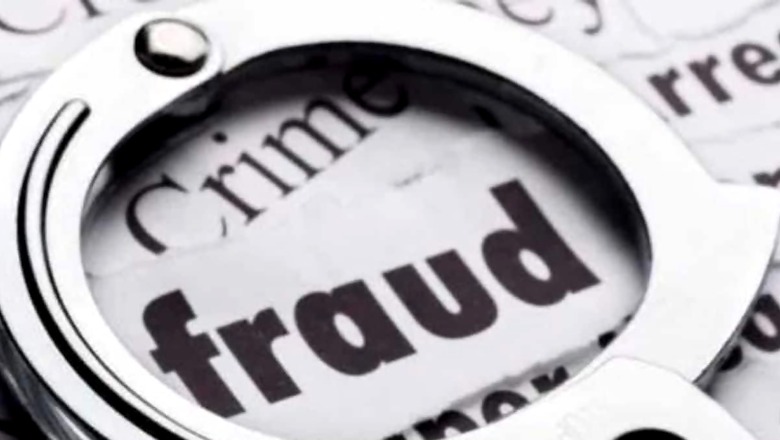
views
A degree or a set of grades is often seen in India’s educational system as proof of one’s ability and hard work, as well as a ticket to success. However, beneath the surface of legality is a world of fraud where fake diplomas and marksheets are traded like commodities. The number of cases involving fake marksheets and degrees in India has increased over the years, exposing a baffling side to the nation’s educational system. The latest Bollywood movie “Patna Shukla,” starring Raveena Tandon, uncovers such unethical practices, in which student grades are swapped for the benefit of individuals in positions of authority. However, the truth is more nuanced than what cinema can convey and several students have fallen prey to such degree frauds.
Understanding the Scope of Counterfeit Degree Frauds
Degree and marksheet frauds in India encompass a wide array of deceptive practices, ranging from forging academic credentials to manipulating exam results. The prevalence of fake degrees in India is alarming and the forgery of documents in particular is a growing problem and demands the utmost attention. The fraudulent reproduction of certificates has increased significantly, becoming a menace for stakeholders in the realm of education and employment.
One of the key reasons for this increase in degree fraud is India’s fierce competition for educational and career prospects. With limited spots available at prestigious universities and intense competition in the job market, the pressure to achieve success has led some people to resort to unethical methods. Individuals tend to turn to buying fake degrees or fabricating their academic records in an attempt to get entry to universities or to obtain lucrative jobs.
Overview of Counterfeit Degree Rackets from The Past Years
Over the past decade, numerous cases have come to light, exposing elaborate rackets involved in the production and distribution of counterfeit educational credentials.
This week, there came news of a similar fake degree fraud to the one in the movie “Patna Shukla.” Parminder Singh Sandhu, the district youth wing president of the AAP, was accused of using a forged Class 12 certificate to obtain a law degree. According to a recent Hindustan Times report, Sandhu filed a case against advocate Deepak Prajapati in 2022, stating that Prajapati provided him with a fraudulent advocate licence. Investigations found that Sandhu failed his Class 12 test in 2008. Following the revelation, the Ludhiana commissioner of police was asked by the Punjab Bar Council and the Haryana High Court to verify the qualifications of 63 attorneys, including Sandhu, who had received their LLB degrees from Prajapati’s centre.
In October 2023, authorities made a significant breakthrough when they apprehended three individuals allegedly engaged in the production and sale of forged degree certificates and marksheets. The operation, which spanned multiple states, was centred around an office in the Anupshahr area of Uttar Pradesh’s Bulandshahr. The accused also ran a website called “Shreebalajiinstitute.org,” where they displayed forged results in hopes of deceiving their victims and charged between Rs 25,000 and 50,000 for each fake degree.
Shortly after, in December 2023, the entrustment document fraud (EDF) wing of the central crime branch uncovered a similar fake certificate racket operating in Chennai for over three years, as per a Times of India report. The bust led to the arrest of four suspects, two from Andhra Pradesh and two from Villivakkam in Chennai. The seizure of 400 fake certificates, along with seals and computer accessories, shed light on the extent of the operation.
In August 2023, it was revealed that a Nepali Congress MP named Sunil Kumar Sharma had reportedly purchased a higher secondary academic degree from Bihar and utilised it to seek higher education in China. Sharma, the owner of several medical and private institutions, was detained by a squad from Nepal Police’s Central Investigation Bureau (CIB), reported Hindustan Times.
Among the repercussions of such fraudulent activities was the case of a government school teacher in Greater Noida, who found himself embroiled in legal trouble after it was revealed that he had secured his position using a counterfeit marksheet. According to India Today, the education department in May 2023 took swift action, ordering the recovery of the entire salary paid to him during his nearly 26-year tenure.
Another notable instance that was brought to light by the Times of India last year was that of Dal Chandra Mehraulia, a purported consultant who found a loophole around the government’s Digital India project. Mehraulia founded MH Eduversity -Digital School of India in Delhi’s Pitampura, where he used tele-callers to reportedly provide students “authentic BTech, BPharma, MA, and LLB degrees” without actually enrolling at Indian or foreign universities.
Since 2020, the syndicate is said to have sold well over 2,000 fake degrees. The criminal branch confiscated forged marksheets, certificates, computers, printers, mobile phones, false stamps, holograms, and blank papers used to produce the bogus documents. The fake documents were manufactured in an editing laboratory, where care was taken to reproduce the intricacies of holograms on the degrees.
Earlier, in May 2017, authorities uncovered another fake degree racket in Bengaluru, which had distributed approximately 1.6 lakh counterfeit mark sheets and degree certificates across various disciplines, including engineering, arts, science, and medical courses. The accused as quoted by The Scroll charged students hefty sums ranging from Rs 25,000 to Rs 30,000 for this service. Among those detained, Sandesh Agarwal was identified as the one who employed associates and gave them the title of “education consultants” at his business. His operatives went up to potential clients and persuaded them to purchase the forged documents.
Can Professionals Lose Licenses/Jobs if Caught Holding Counterfeit Degrees?
For professionals in regulated fields like law, education and medicine, the consequences of being discovered in possession of forged degrees or transcripts might be severe. The use of fake degrees and licenses is a criminal offence in India, punishable under various sections of the Indian Penal Code (IPC) and specific laws related to education and professional regulations.
Notably, Section 468 – Forgery for the purpose of cheating is the law that tackles Individuals who forge or create fake degrees, certificates, or licenses with the intention of deceiving others can be charged under this section.
Licensing authorities and professional bodies have high standards of integrity and competence, and any proof of fake credentials can result in disciplinary action, including licence cancellation and termination of employment.
The verification of medical degrees and certifications, for example, is subject to strict rules set by the Medical Council of India (MCI). Doctors who are found guilty of possessing or utilising bogus degrees face the loss of their medical licences as well as legal sanctions, including imprisonment.
Similarly, attorneys practising in India are supervised by the Bar Council of India (BCI), which has the right to suspend or disbar advocates found guilty of misconduct, which includes the submission of forged documents.
Countermeasures Against Degree Fraud:
Verification Mechanisms
To validate academic qualifications, institutions and companies must put in place comprehensive verification methods. This involves reviewing documentation directly from the issuing agencies and doing rigorous background inquiries.
To verify degrees and certificates awarded by Indian institutions, visit the official websites of the University Grant Commission (UGC) and the National Academic Depository (NAD). For international universities, one can confirm the legitimacy of the degree on the college or university website with the website of the country’s Department of Education.
Examining Design of Certificates
Ensuring the authenticity of certificates begins with a meticulous examination of their design. Legitimate degrees and certificates, issued by reputable educational institutions, are typically printed on distinctive, high-quality paper. Any deviation from this norm, such as printing on regular paper, may signal the presence of counterfeit credentials. Moreover, authentic certificates often feature intricate design elements similar to those found on banknotes.
Additionally, scrutinising the language and layout of the certificate is essential as spelling errors are often the most evident signs of forgery.
Anti-counterfeiting security features
Educational institutions employ various physical authentication features on degree certificates to deter tampering or replication. These features encompass micro-text lines, UV invisible ink, watermarks, security holograms, anti-scanning ink, and more. Among these, the security hologram, anti-scanning ink, and void features play pivotal roles in thwarting attempts at duplication. For instance, the void feature triggers the appearance of the word “COPY” when someone tries to duplicate the degree, serving as an unmistakable indicator of authenticity.
Campaigns for Public Awareness
It’s imperative to inform the public about the repercussions of degree and marksheet forgery. Awareness-raising efforts have the power to inform people about the moral ramifications of using dishonest tactics and encourage individuals to maintain integrity in their academic endeavours.
Academic fraud is a significant issue, underscoring the need for a joint effort among all stakeholders to tackle it. Education officials must prioritise developing effective measures to prevent degree and marksheet fraud, while simultaneously emphasising the moral consequences of academic misconduct.




















Comments
0 comment